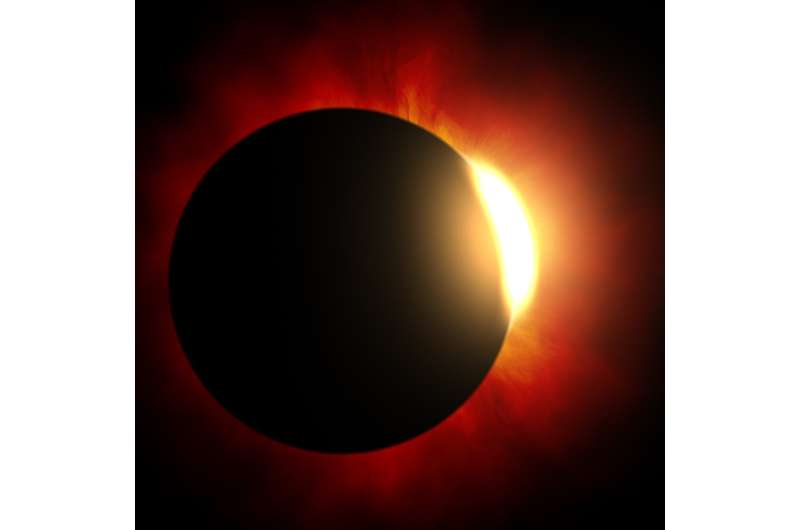Davis.
While it's crucial to protect your eyes with ISO-approved solar eclipse glasses, Dr. Davis cautions people never to put sunscreen directly on their eyes.
"You cannot put sunscreen on your eyeballs, sunscreen is only for the skin," she says.
Lotion applied to the eyes can cause chemical irritation and possibly damage.
"While we're spending time making sure that we protect our eyes during the solar eclipse, which is extremely important, it's important to remember that your skin is also vulnerable to the UV light," says Dr. Davis.
Along with the proper eyewear, consider wearing a broad-brimmed hat and using sunscreen with SPF 50. "I would reapply every two hours at minimum. And if you happen to sweat or get wet, I would reapply immediately," Dr. Davis says.
Tips for safely viewing the total solar eclipse
- Along with wearing special glasses, there are additional ways to stay safe during a solar eclipse.
- Wear sunscreen with a high SPF and broad-spectrum protection. Reapply it every two hours, or more often if you sweat or get wet.
- Wear a hat that covers your head, face, ears and neck. A wide-brimmed hat is ideal, as it can also shield your eyes from the sun.
- Wear protective clothing that covers your arms and legs. Choose light-colored, loose-fitting and breathable fabrics that can keep you cool and comfortable.
- Seek shade whenever possible, especially during the peak hours of the sun's intensity (between 10 a.m. and 4 p.m.).
- Drink plenty of water to stay hydrated, and avoid heat exhaustion or heatstroke.
2024 Mayo Clinic News Network. Distributed by Tribune Content Agency, LLC.



